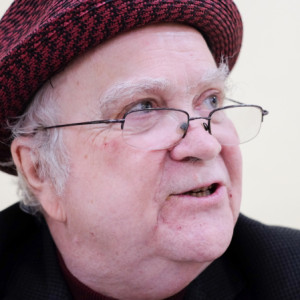Margery and David
Margery and I have been friends since 1971. We were pregnant together in 1973 and nursed our babies together at tables where leftist friends and lovers talked of revolution, undoing racism, community organizing, and ways to end the Vietnam War. Our friendship never skipped a beat when I realized my sexual orientation was not heterosexual. She completely supported me, celebrated with me. Finally I had figured out why my love relationships with men didn’t work. We wrote grant applications together and worked at Tremé Street Academy together in 1980. When I returned from Africa in 1999, I rented an apartment across the street from her and her husband David Billings, and I relied on their friendship as I steered my way through the culture shock of returning to life in America with two adolescent Black children. Today she and David (see Extra) were in Portland for a presentation on his book, Deep Denial: The Persistence of White Supremacy in United States History and Life (2016).
Looking into Margery’s eyes, remembering her at 30, 40, 50, and seeing her now at 75, I treasure the ways that learning together, which is what she and I have been doing since 1971, connects us. Margery and I have written the story of our education in the lines in our faces and in the lives of our children and others we have struggled with as we made our mistakes.
David has written his story in those ways and also in this book that explores the history of the construction of “white” people in the USA, a notion that has, like a bad smell, permeated the air of the entire planet. Near the end he writes, “Either we challenge and transform these white-dominated institutions so our nation can become one in which everyone’s humanity is recognized and affirmed, or racism will destroy us.” But he closes with characteristic optimism: “We can ‘undo’ racism when we find ways to work together across lines of class, gender, language, geography and organizations. There is not just one way to do it. One group can’t do it. Single-issue organizing will fail.... We must understand how white people have internalized white supremacist perspectives.” This is what his book, and People’s Institute, the group he has been part of since 1980, is about.


Comments
Sign in or get an account to comment.


